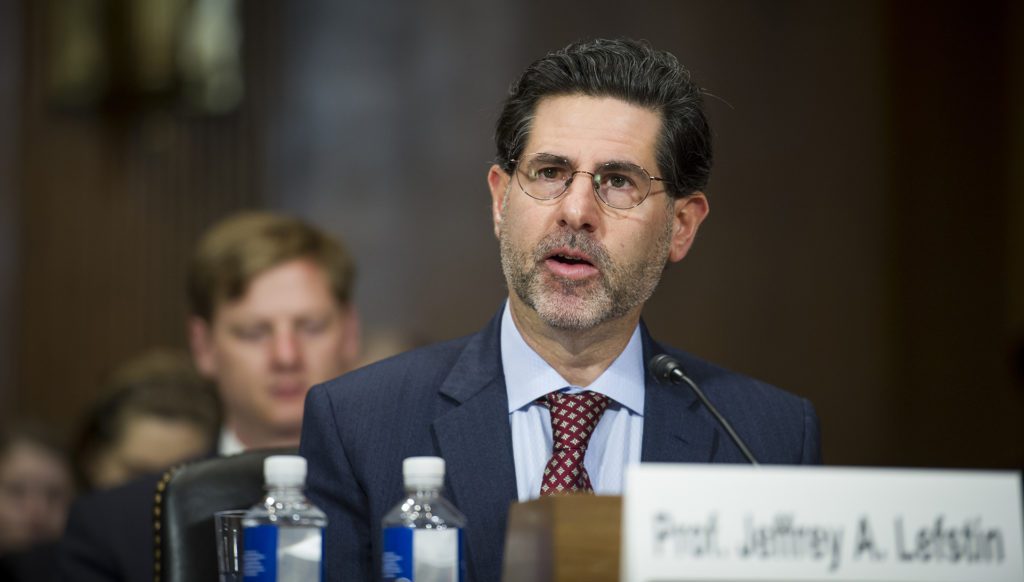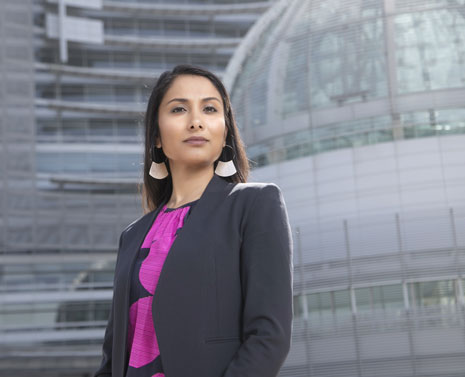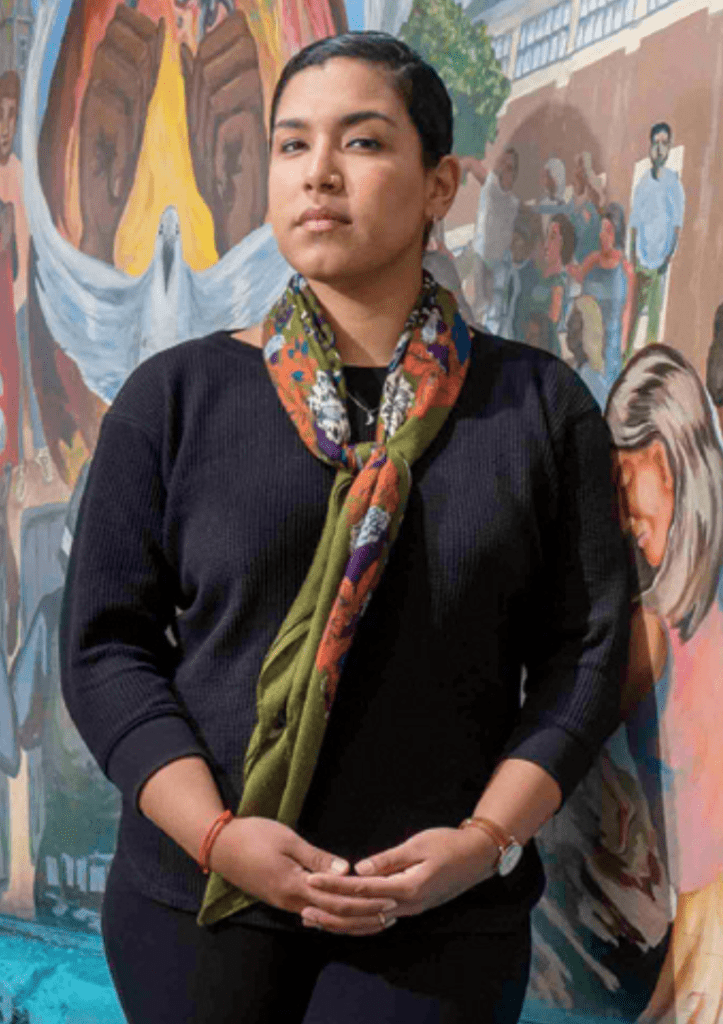Intellectual Exchange in Germany
Experts from UC Law SF are increasingly invited to spend time overseas, engaging in dynamic exchanges with their counterparts at prestigious international institutions of higher learning. In so doing, faculty, alumni, and students not only bring their expertise to conferences and classrooms throughout the world but also gain invaluable exposure to both the practice and study of the law in foreign countries. One country in which this exchange has come to particular fruition is Germany. With a strong tradition of legal scholarship, Germany approaches some aspects of the law quite differently than the United States does, according to UC Law SF Chancellor & Dean David Faigman.
For instance, in Germany, students enter into an apprenticeship after earning their law degrees at the undergraduate level. In the United States, Faigman said, “lawyers for the most part learn on the job,” some- times having taken courses in law school about parts of the law they will never use simply because they were needed to pass the bar.
“We could learn a lot from the Germans,” Faigman said. “The objective of both law schools and licensure organizations should be to cultivate and evaluate the ability of a junior lawyer to practice their profession.”
Such considerations are but a sampling of the kinds of comparative study that occurs when UC Law SF experts, such as the three described below, bring their knowledge and curiosity to world- renowned institutions.
Jeffrey Lefstin: An International Approach to IP Law
As academic co-director at Bucerius Law School, UC Law SF Professor Jeffrey Lefstin helps lead a summer institute that is a joint project of UC Law SF and the Bucerius Center for Transnational IP, Media and Technology Law and Policy. The program, which launched in 2014 and is offered in conjunction with the United Nations-affiliated World Intellectual Property Organization, brings together renowned academics as well as skilled practitioners from Europe and the United States. The practitioners, according to Lefstin, are well steeped in IP. “They spend every day negotiating intellectual property license agreements,” he said.

Jeffrey A. Lefstin, Ph.D., Associate Academic Dean & Professor of Law,University of California, Hastings College of the Law, testifies before the Senate Committee on the Judiciary Subcommittee on Intellectual Property hearing titled The State of Patent Eligibility in America: Part I, in the Senate Dirksen Office Building on Capitol Hill in Washington, DC., Tuesday, June 4, 2019. (Photo by Rod Lamkey Jr.)
Established with UC Law SF Professor in Residence Dana Beldiman, the Bucerius/UC Law SF Summer Program in International IP Transactions seeks to provide students with an understanding
of the differing legal systems that can affect intellectual property transactions in an international context. The course is available to advanced law students and young professionals. It offers a unique approach, Lefstin said, in that it focuses on licensing, not patentability and patent infringement, which are more often taught in IP classes. The course organizers invite expert speakers in all aspects of licens- ing—which can include IP law, contract law, and antitrust law, among others—and offer an experiential component in which students engage in mock contract drafting and negotiation.
“IP today is global, and it’s not enough for practitioners to know simply about the legal regime in their own country,” said Lefstin, a widely published specialist in patent law. “Any sophisticated company seeking to monetize and deploy its IP assets has to be thinking about the international implications.”
The diverse roster of students who take the course in transnational intellectual property law at Bucerius represents a living example of the global range of legal systems, Lefstin said. “I have students who come from different systems, so they start with different assumptions than U.S. students do,” Lefstin said. “For instance, German law might take fairness in a contract much more seriously as a value.”
Such differences make international engagement vital to successfully practicing IP law. “The world is so interconnected,” said Lefstin. “Intellectual property crosses borders. Inventions and ideas cross borders. You have to know some- thing about the international regime.”
Comparative study of different legal approaches, in this case comparing the United States to Germany, will form the basis of a seven-month research project Lefstin will pursue next year at the Max Planck Institute for Innovation and Competition in Munich.
This branch of the Max Planck Society is dedicated to legal and economic research on innovation, competition, and regulation. The institute features a prestigious international team of scholars and an extensive scientific and administrative infrastructure, including a world-famous library. As an independent institution, it provides evidence-based research results to academia, policymakers, the private sector, and the general public.
Lefstin will study differences between the United States and Germany in the patentability of scientific discoveries, such as medical diagnostics, a topic on which he offered congressional testimony in June.
He will also compare the state of licensing law in the United States, where one component of licensing law, intellectual property law, is within the jurisdiction of the federal courts, and another component, contract law, is within the state courts. In Germany, the two types of law are decided by a central court.
“One question to explore,” said Lefstin, “is whether unification of the contract and intellectual property law regimes yields a richer and more nuanced body of licensing law.”
Faculty members’ international engagement and comparative study are crucial to today’s law students, Lefstin said, adding that “our faculty’s experiences are important in promoting international cross-fertilization.”
Veena Dubal: A Global Lens on the Tech Economy
The Max Planck Institute for the Study of Societies, in Cologne, invited 11 experts from outstanding institutions all over the world to a March 2019 symposium exploring the economic, political, and social impacts of technological transformation.
UC Law SF Associate Professor Veena Dubal, one of the foremost authorities on work condi- tions in the tech economy, was one of them.
The Max Planck Institute for the Study of Societies conducts research on the governance of modern societies by developing empirically based theories of the social and political founda- tions of economies and examining how markets and businesses fit into historical, institutional, political, and cultural frameworks; how they develop; and how their social contexts transform over time. The institute seeks to build a bridge between theory and policy in order to contribute to political debate on major challenges facing modern societies.
The institute asked for Dubal’s participation at the symposium to help derive insights into the most important research strands within the broad topic of technological change and society. Dubal’s invitation referred to the institute’s effort to “learn which approaches in the social sciences are most promising in developing a deep under- standing of the interrelation between current technological changes and social and political development.”
Dubal is a leading expert on nonstandard— and often poorly paid and insecure—work in the tech economy. She has produced two ethnographies: one of taxi and Uber drivers in New York City and San Francisco and the worker collectivities that arose during the shift from a taxi to an Uber economy, and a second of white-collar tech workers in the San Francisco Bay Area and New York City (primarily those who work at YouTube, Verily, or Google) who call themselves the Tech Workers Coalition.
In just the past semester, Dubal and her research have been featured in a number of documentaries about workers’ rights—including one in Brazil. Her research has also brought her invitations to Harvard, Princeton, UC Berkeley, MIT, and Yale—and to Max Planck, an opportunity she values highly as part of her overall international experience.
“Too many law scholars operate in a U.S. bubble,” Dubal said. “Grounding my research in comparative cultural and political knowledge has enhanced the quality of my analysis and my policy prescriptions.”
Constanza Ortiz ’20: Quantifying the Risk of Human Rights Violations
Having worked at both the World Bank and the Inter-American Court of Human Rights just before and after her first year at UC Law SF, Constanza Ortiz ’20 took what was a unique perspective and came up with a plan for how to help detect and avoid human rights violations in Latin America.
At the World Bank, Ortiz had worked on a data- base for which information about occurrences of regional fraud and corruption was distilled into data points and used to assess the risk of such corruption occurring, and to detect and mitigate it in countries and regions where the bank operated.
Working at a 40th anniversary event at the Inter-American Court of Human Rights, Ortiz had the opportunity to discuss her idea with Armin von Bogdandy, the director of the Max Planck Institute for Comparative Public Law and International Law, who had just written a book chapter on a similar topic. The Max Planck Institute for Comparative Public Law and International Law, in Heidelberg, focuses on current developments in public international law, European Union law, and the constitutional and administrative law of individual nations.
Von Bogdandy asked Ortiz to review his chapter, and he then helped organize a one-month fellowship in December 2018 that was designed for her to continue developing her research. At the end of the fellowship, von Bogdandy suggested Ortiz send a paper on her research to the Law and Development Research Network Conference, organized by educational institutions in Europe and the developing world, to be held at Berlin’s pres- tigious Humboldt University in October 2019. Ortiz had written the paper for the Hastings International and Comparative Law Review, for which she is an editor. Based on submission of her paper, Ortiz was selected from candidates from all over the world to speak on a conference panel.
“Professor von Bogdandy had suggested I use the conference as a space to flesh out my ideas,” Ortiz said. “It’s a trajectory I never would have anticipated coming out of law school.”
Ortiz hopes that sharing her research at the Berlin conference could help the World Bank and other institutions like the Inter-American Court of Human Rights to organize collaboratively and code information in databases to help guarantee the human rights of societies affected by international funding projects.
“I began this research because I felt the need to document a serious shortcoming,” Ortiz said. “My hope is that by sharing this research with influential members of the international community, this can amount to desperately needed institutional change.”
If you organize and code information in a certain way, you can quantify risk,” Ortiz said, “which gives you a better understanding of the problem and how to avoid it.”
At the Inter-American Court of Human Rights, Ortiz realized that if the World Bank similarly organized the sentences and sanctions handed down by the court for human rights violations, the risk of such violations could be assessed and the violations pre-empted or mitigated. This could allow the bank to “better determine whether a project should be initiated, whether safeguards need to be implemented, and if other bodies of the bank need to be involved,” she said.

